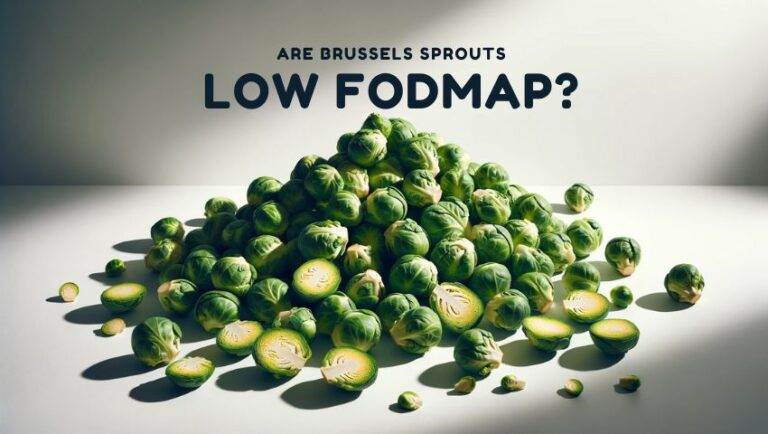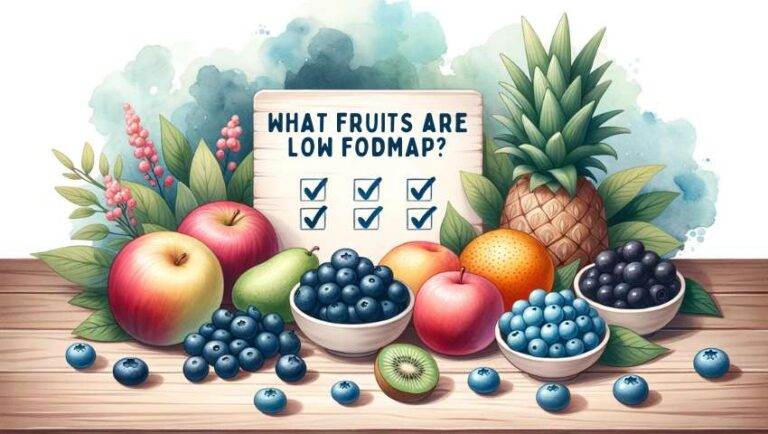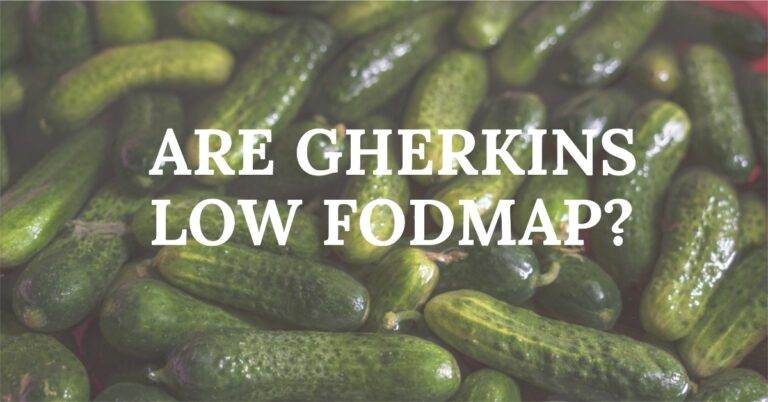Stop the IBS Guesswork: Are Nectarines FODMAP Friendly?

FODMAPs can be a bit tricky, especially where fruits are concerned. On that note, you may be wondering – are nectarines FODMAP friendly?
Nectarines are considered high FODMAP, so moderation is key. Portion control is vital: stick to one small nectarine max to avoid IBS flare-ups. If you experience symptoms, consider low-FODMAP fruits such as Cantaloupe, kiwi fruit (green), mandarin, or orange.
Stay with us to uncover the nuances and get the scoop on enjoying nectarines without aggravating your IBS symptoms.
Key Takeaways
- Nectarines are a high FODMAP fruit option. Those on a low-FODMAP diet should only consume moderately.
- Incorporating nectarines into your diet can be a delightful way to add variety.
- For personalized advice, consult a dietitian or use a low FODMAP app.
- Experimentation is crucial: monitor your body’s response to determine your tolerance level.
Uncovering the Nectarine Mystique

Nectarines, a close relative of peaches, often raise eyebrows in the FODMAP community.
Generally low in FODMAPs, these fresh and juicy fruits can be a fantastic addition to your food repertoire, providing you keep the quantity in check.
Now, you might wonder about the specifics – how many slices of nectarine are considered safe? It’s a tough question, as individuals tend to respond differently.
Ideally, aim for a small nectarine or a few slices to avoid a high FODMAP load. Remember, overindulging could potentially cause unwanted IBS symptoms.
For a deeper understanding of the nectarine’s place in the low FODMAP diet, consult with a dietitian or try a small amount first to gauge your gut’s reaction.
Not to forget, you can always refer to my guide on FODMAP-friendly fruits if you want to satisfy your sweet tooth without flaring up your IBS symptoms.
Spice Up Your Meals with Nectarines
Spicing up your meals with a sprinkle of nectarine slices can not only add a burst of flavor but also some much-needed variation to your low FODMAP diet.
Whether it’s a refreshing summer salad or a warm bowl of oats, incorporating nectarines can significantly improve your meal experiences.
| Recipe Ideas | Ingredients |
|---|---|
| Nectarine Salad | Fresh nectarines, spinach, walnuts |
| Morning Oat Bowl | Oats, sliced nectarines, a dash of cinnamon |
These delicious fruits are a fantastic source of vitamins and can aid in reducing symptoms such as bloat and constipation.
And if you’re thinking of a drink to go with your meal, a nectarine smoothie might just be what you need to rejuvenate your spirit.
Just remember to avoid high FODMAP ingredients like high fructose corn syrup or garlic in your recipes.
For those dealing with IBS, adapting to a low FODMAP diet can sometimes feel like a restriction. Luckily, nectarines offer a sweet respite.
Learn more about managing IBS through a balanced diet by learning how to self-manage IBS symptoms.
The Peachy Side of FODMAP
Peaches and nectarines share the spotlight in a low FODMAP diet. The sugar content in a peach is relatively less compared to other fruits, making it a safer bet to prevent IBS flare-ups.
However, it’s essential to consume these in a controlled amount to avoid any stomach upset.
Let’s not forget about nectarines, which are basically fuzz-free peaches and a marvelous option to include in your diet.
Adding a Splash of Creativity to Your Diet
When it comes to brightening up your plate, a splash of vibrant nectarines can make a significant difference. Wondering how to incorporate this fruit in your meals?
Consider grilling a slice or two of nectarine to accompany a meat dish. It provides a fresh and sweet contrast to the savory flavor of animal proteins.
Similarly, peaches offer a burst of sweetness that can complement a variety of dishes.
- Peach and Nectarine Salsa: Combine diced peaches and nectarines with a dash of lime and fresh herbs to create a tantalizing salsa.
- Summer Smoothies: Blend peaches and nectarines with a hint of mint to prepare a refreshing smoothie.
- Salads with a Twist: Toss a few slices of peaches and nectarines into your salad for a burst of sweetness and color.
Tip: Always choose ripe yet firm peaches and nectarines to ensure the best flavor and texture.
Speaking with a Dietitian
As you adapt to a low FODMAP diet, consulting a dietitian can be beneficial. They can help you navigate the phases of the diet more smoothly and might even suggest a handy low-FODMAP app to keep track of your food intake.
Since everyone’s gut reacts differently to foods, a dietitian can guide you in personalizing your diet to reduce symptoms like bloat and constipation.
In case you’re searching for ways to enhance your self-care regimen alongside adapting to the low FODMAP diet, check this self-care guide for IBS.
Cooking at Home: A Safe Haven
Cooking at home stands as a pillar in managing IBS symptoms effectively. It allows you to have complete control over the ingredients and the portion sizes, thereby reducing the risk of any adverse reactions.
Besides, home-cooked meals tend to be fresher and devoid of high levels of sugars and other additives that can aggravate IBS symptoms.
When shopping for ingredients, keep an eye out for foods that are low in high FODMAP components like fructans and sorbitol.
Are Nectarines FODMAP Friendly? – Final Thoughts for Irritable Bowel Syndrome Sufferers
Adopting the first phase of the low FODMAP works wonders for many irritable bowel syndrome sufferers.
While it’s tempting to eat cherries and plums, remember some fruits and vegetables like onion and watermelon contain high levels of oligosaccharides and polyols that you might need to avoid.
Pears, on the other hand, depend on their ripeness—some may be high in FODMAPs, others low. Always consult a doctor or dietary guideline, like the Monash recommendations, before making drastic changes.
Regularly reviewing guidelines and monitoring how your body tolerates specific foods, from beef to coffee, will lead to faster relief from symptoms like gas.
Don’t be afraid to stay informed and stay healthy and consider alternatives like the best IBS supplements and gut-directed hypnotherapy with Nerva IBS to keep your symptoms in check!
Disclaimer: This content is based on my personal experience as an individual diagnosed with celiac disease and IBS (Irritable Bowel Syndrome) who follows a strict gluten-free diet. This does not constitute medical advice. Please consult a medical professional, nutritionist, or qualified dietitian for personalized, professional advice.






